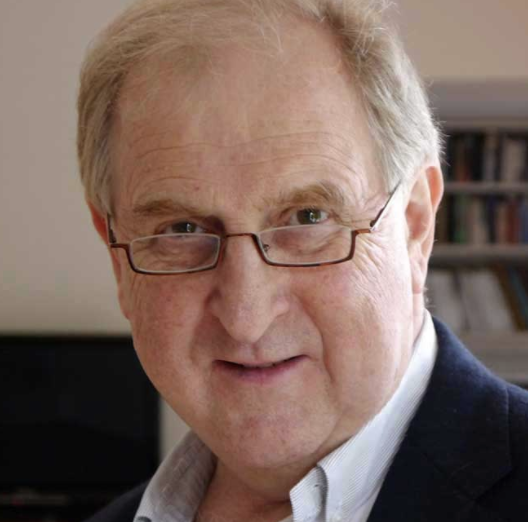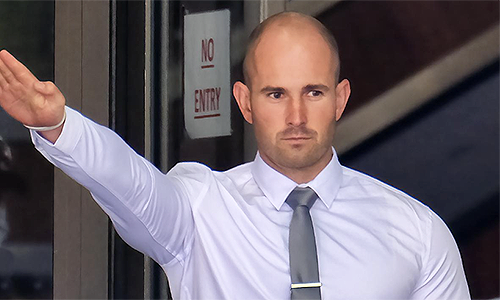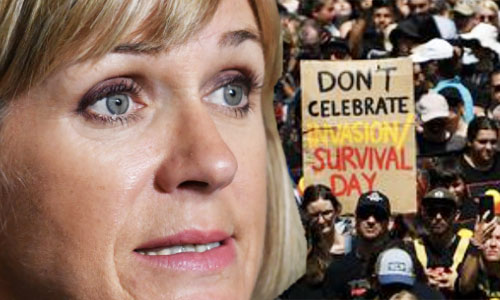
WITH the 26th of January and Australia Day upon us it’s time to acknowledge and celebrate what a great country this is.
Forget the racial activists and Left-wing whingers always talking the nation down with their argument we are a racist, white supremacist society where Aborigines suffer perpetual disadvantage.
Also ignore the Black Lives Matter activists wanting to deface Captain Cook’s statue and who argue, like an Original Sin that can never be expunged, that every generation of Australians past, present and future must feel guilty and ashamed.
- Forget the racial activists and Left-wing whingers always talking the nation down.
- Australia is a free, open & democratic society where all are entitled to vote and equal before the law.
- Australians should acknowledge and celebrate what has been achieved.
The reality is Australia is a free and open, democratic society where all are entitled to vote, all are equal before the law and, as a result of the High Court’s Mabo decision, Indigenous Australians have ownership of their land.
Every year Indigenous Australians receive approximately $30 billion from State, territory and commonwealth governments.
It shouldn’t surprise according to the US-based Fraser Institute’s world freedom index Australia is ranked number five out of 162 countries in terms of liberty, the rule of law, religious freedom, freedom of expression and security and safety.
As to why millions of people from around the world have migrated to make Australia home and why we are such a prosperous, peaceful nation look no further than the arrival of the First Fleet and the fact it was the British flag and not the French or Portuguese Governor Phillip saluted on the 26th January 1788.
Along with the over 1300 convicts and soldiers who came ashore at Port Jackson were two books central to Australia’s evolution as a Western, liberal democracy.
The first, William Blackstone’s Commentaries on the Laws of England, details a legal and political system that champions concepts like habeas corpus, the right to a fair trial and the primacy of the law.
While far from perfect, such was the power of the legal system that accompanied the First Fleet that two convicts, Henry and Susannah Kable, were able to successfully win a court case against their ship’s captain for losing a parcel during the voyage to Sydney Harbour.
Compared to China where Muslim Uighurs are imprisoned, Russia where political opponents are poisoned and Egypt where Christian Copts are regularly persecuted and their churches destroyed, Australians can go about their lives free of unjustified government control and interference.
ALMIGHTY
The King James Bible also arrived with the First Fleet and such is the enduring impact of Christianity on our institutions and way of life that parliaments around Australia begin with the Lord’s Prayer and the preamble to the constitution includes the words “Humbly relying on the blessing of Almighty God”.
Christian concepts like the inherent dignity of the person, free will, forgiveness and redemption and a commitment to social justice and the common good are biblical in nature and it should not surprise the man most responsible for the British Empire banning slavery, William Wilberforce, was a Christian.
While there’s no doubt Aborigines suffered dispossession, violence and disease as a result of establishing a convict settlement it’s also true their lands were never invaded. The admiralty’s orders to Governor Phillip included the words “conciliate their affections” and to “live in amity and kindness with them”.
As detailed by Watkin Tench, one of the soldiers who arrived with the First Fleet, every attempt was made by Governor Phillip to ensure there was no antagonism or conflict; proven by the fact after he was speared Phillip sought no retribution.
It’s also true, after the Myall Creek massacre in 1838 where Aborigines were killed by a group of Europeans, seven of those responsible were convicted and hanged. While not always enforced it’s clear that under British law Aborigines had the same rights as whites.
The historian Geoffrey Blainey when writing about how Australian history is often interpreted describes two opposing views. The so-called “black armband” view emphasises the sins of the past where there are no redeeming qualities or anything positive.
What he describes as the “three cheers” view of history, on the other hand, ignores what is dark in favour of only emphasising what is worthwhile and beneficial. When it comes to Australia’s origins and evolution since the arrival of the First Fleet neither is true.
While Aborigines suffered the loss of their lands and experienced violence and disease it’s equally true over time their rights and freedoms have been guaranteed. One of the unique features of Western nations like Australia is that we have the ability to recognise injustice and work towards a fairer society where all are equal.
In a world increasingly characterised by oppression where billions live under fear and tyranny all Australians, regardless of race, ethnicity or religion, should acknowledge and celebrate what the nation has achieved.PC












